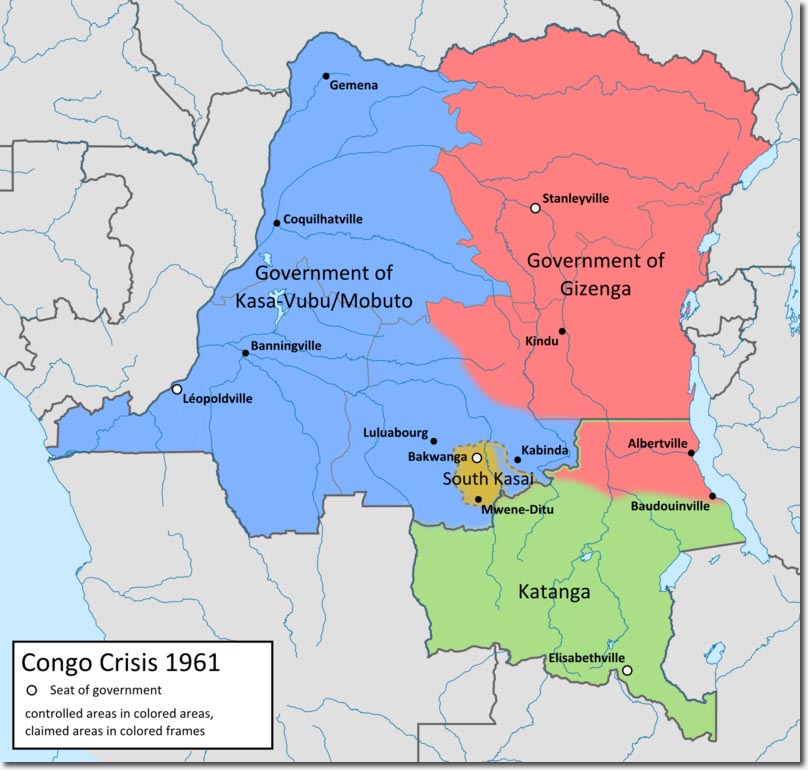|
|


|
|
In the months leading up to independence, the Congolese elected a president, Joseph Kasavubu, prime minister, Patrice Lumumba, a senate and assembly, and similar bodies in the Congo’s numerous provinces. The Eisenhower administration had high hopes that the Republic of the Congo would form a stable, pro-Western, central government. Those hopes vanished in a matter of days as the newly independent nation descended into chaos. On July 5, Congolese soldiers in the Force Publique mutinied against their white Belgian commanders at the Thysville military base, seeking higher pay as well as greater opportunity and authority. The mutiny quickly spread to other bases and violence soon broke out across the nation. Thousands of Europeans (primarily Belgians) fled, and stories of atrocities against whites surfaced in newspapers around the globe. Unable to control the indigenous army (renamed the Congolese National Army), the Belgians brought in troops to restore order without seeking permission to do so from either Kasavubu or Lumumba. In response, the Congolese government appealed directly to the United Nations to provide troops and demanded the removal of Belgian troops. On July 13, the United Nations approved a resolution which authorized the creation of an intervention force, the Organisations des Nations Unities au Congo (ONUC), and called for the withdrawal of all Belgian troops. Two days earlier, the wealthy Katanga province had declared its independence from the Republic of the Congo, followed in August by South Kasai province.
While the United States supported the U.N. effort, members of the Eisenhower administration, increasingly concerned that the Congo crisis would provide an opening for Soviet intervention, sought a diplomatic solution to the crisis. Lumumba was invited to visit Washington in late July, in the hopes that the United States could exert a moderating influence on the prime minister. The visit underscored the futility of that effort. Reports from Lawrence Devlin, the CIA Chief of Station in Leopoldville (Kinshasa), described the situation in the Congo as a classic Communist takeover. The reports, coupled with the arrival of Soviet bloc technicians and matériel, convinced members of the national security team that Lumumba had to be removed. A flurry of U.S. diplomatic activity in support of unseating Lumumba ensued. Plans were also developed to assassinate Lumumba if necessary. On September 5, Kasavubu dismissed Lumumba from the government. Lumumba ignored the decree and dismissed Kasavubu. Lumumba’s supporters in the Congo and abroad were outraged and pledged to support his return to office. In an attempt to avoid civil war, Colonel Joseph Mobutu of the Congolese National Army (CNA) orchestrated a coup d’état on September 14, and ordered the Soviets out of the country. Mobutu’s early efforts to support a pro-Western government and his ties to the military placed him in good stead with Devlin, who informed Mobutu of a plot to assassinate him on September 18. Lumumba, who was blamed for the plot, was arrested and ultimately killed on January 17, 1961. |
Tales of Colonial Policeman in Northern Rhodesia
Armed Forces | Art and Culture | Articles | Biographies | Colonies | Discussion | Glossary | Home | Library | Links | Map Room | Sources and Media | Science and Technology | Search | Student Zone | Timelines | TV and Film